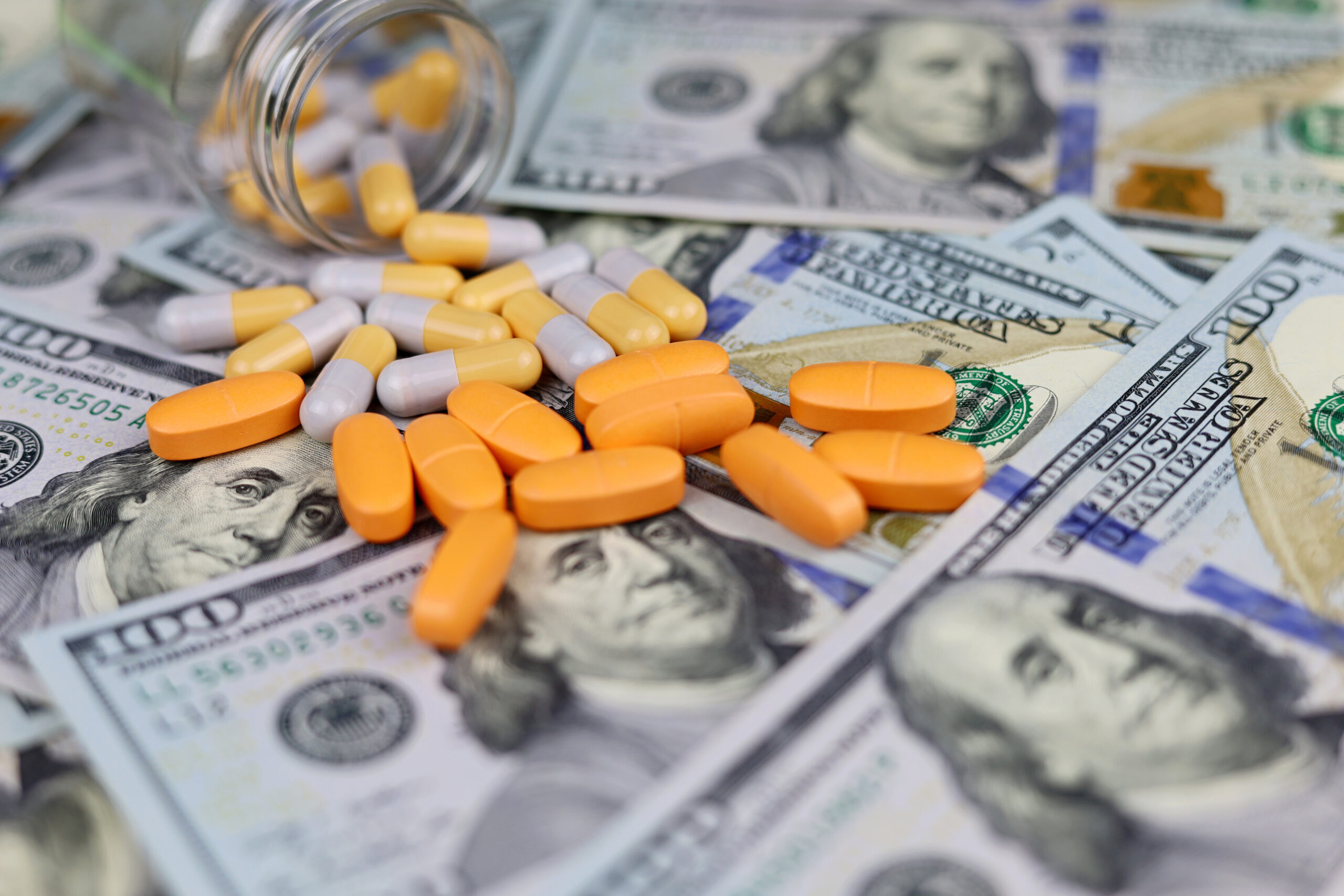© 2025 CSRXP- All Rights Reserved

BIG PHARMA EARNINGS WATCH: ABBVIE, ASTRAZENECA, AMGEN
Aug 5, 2022
Big Pharma Drugmakers Top Wall Street Estimates After Hiking Drug Prices Earlier This Year
This week, brand name drug giants AbbVie, AstraZeneca and Amgen all announced earnings and profits for the second quarter of 2022 that topped Wall Street analysts’ expectations. The Big Pharma giants reported blockbuster earnings and revenue estimates after hiking drug prices on American patients over the summer – on top of additional price hikes at the beginning of the year.
AbbVie
- AbbVie reported Q2 earnings that beat Wall Street analysts’ forecasts, posting net revenues of $14.6 billion.
- AbbVie’s immunology portfolio reached revenues of $7.21 billion, jumping 2 percent.
- AbbVie’s blockbuster arthritis drug Humira, the world’s top-selling drug since 2012, brought in $5.36 billion in revenues globally.
- The company’s blockbuster psoriasis drug Skyrizi and arthritis drug Rinvoq brought in combined revenues of $1.84 billion.
- Over the last four quarters, the company has surpassed consensus EPS estimates four times.
AstraZeneca
- AstraZeneca topped Wall Street analysts’ second-quarter profit and revenue estimates.
- AstraZeneca’s lung cancer drug Tagrisso had a quarterly increase in revenues of 7 percent to $1.4 billion.
- Sales of cardiovascular and diabetes treatment Farxiga jumped 51 percent to $1.1 billion in the quarter.
- The company’s results were so strong, in fact, that AstraZeneca decided to raise its outlook for the full year.
Amgen
- Amgen posted $6.6 billion in Q2 revenue, topping Wall Street forecasts.
- The drugmaker also surpassed Wall Street earnings expectations, reporting $1.32 billion.
- Amgen shares increased nearly 10 percent from the beginning of 2022 – well outperforming the NASDAQ.
- Over the last four quarters, the company has surpassed consensus EPS estimates four times.
The blockbuster earnings and profits come as Big Pharma companies have continued to hike prices on their prescription drugs, despite a growing crisis of affordability.
AbbVie
- AbbVie launched another round of major price hikes to start the year, and increased prices on five more drugs this summer.
- In January, AbbVie hiked the price of its blockbuster drug Humira, as well as on its autoimmune medicines Skyrizi and Rinvoq and cancer treatment Imbruvica – all by 4 percent.
- This follows 7.4 percent price hikes at the start of last year, on all of the same prescription drugs.
- AbbVie has a history of price gouging on the company’s blockbuster rheumatoid arthritis drug, Humira.
- Humira’s price has almost doubled since 2012, from about $19,000 to $38,000.
- AbbVie currently holds over 130 patents on Humira in the United States, blocking competition for up to 39 years.
- According to ICER, price hikes on AbbVie’s Humira were not supported by new clinical evidence and accounted for an unnecessary increase in U.S. drug spending of more than $1.8 billion from 2017 to 2018.
AstraZeneca
- The brand-name drug maker has hiked prices on 27 medications this year, including on eight drugs this summer.
- In 2021, AstraZeneca increased prices on 19 different drugs at the height of the pandemic – including on hyperkalemia drug Lokelma and blockbuster drug Symbicort.
- The company has hiked prices on products in its portfolio three times during the COVID-19 pandemic.
AstraZeneca has a long history of hiking prices on Americans struggling to afford their medications:
- AstraZeneca Was One Of Several Companies To Participate In Big Pharma’s Biennial Price Hikes This Summer– despite the unprecedented economic uncertainty facing millions of Americans grappling with the pandemic – by increasing prices on 18 drugs, including on popular cholesterol drug Crestor and blockbuster drug Symbicort. (Tori Marsh, “Live Updates: July 2020 Drug Price Increases,” GoodRx, 8/3/20)
- In Anticipation Of Generic Competition For Its Blockbuster Anti-Ulcer Drug Prilosec, AstraZeneca, “Introduced And Pushed Doctors To Prescribe” A New Drug “Which Was Only Slightly Chemically Different From Prilosec But Had 13 Years Of Patent Protection Left.”The Report Estimates The One-Year Cost Of This Product Hop To Be Almost $2.4 Billion. “The anti-ulcer drug Prilosec was, at one time, the top drug by sales in the United States. In 2000, before its scheduled patent expiration the following year, Prilosec sales reached $4.1 billion (NIHCM Foundation, 2001). In anticipation of generic competition for its blockbuster product, AstraZeneca, Prilosec’s manufacturer, introduced and pushed doctors to prescribe its new anti-ulcer drug, Nexium, which was only slightly chemically different from Prilosec but had 13 years of patent protection left. A lawsuit alleging that AstraZeneca engaged in anticompetitive behavior with Prilosec and Nexium was dismissed in early 2008 when a district court found that AstraZeneca “did not eliminate consumer choice” (Callan, 2015). But antitrust experts have pointed out that the court’s reasoning ignores “the realities of drug markets,” where a prescription for a single-source brand drug removes the option of a generic version (Carrier and Shadowen, 2016).” (Alex Brill, “The Cost of Brand Drug Product Hopping,” Matrix Global Advisors, 9/11/20)
Amgen
- Amgen started the year hiking prices more than a dozen times – including on popular drugs Enbrel and Otezla – and raised prices on nearly 20 more drugs this July.
- A recent House Committee on Oversight report found that Amgen hiked prices of blockbuster drugs Enbrel and Sensipar to meet revenue targets.
- According to ICER, price hikes on the company’s cancer drug Neulasta were not supported by new clinical evidence and accounted for an unnecessary increase in U.S. drug spending of nearly $500 million from 2017-2018.
Read more on second-quarter earnings from Big Pharma giants Johnson & Johnson, Roche and Novartis HERE.
Read more on Q2 earnings from Pfizer, Merck, Bristol Myers Squibb, GlaxoSmithKline and Sanofi HERE.
Stay tuned as we continue to monitor earnings calls from Big Pharma for the second quarter of the year.
Learn more about bipartisan, market-based solutions to lower prescription drug prices and hold Big Pharma accountable HERE.
